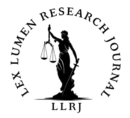Written by M.Kiruthika,
Intern-Lex Lumen Research Journal,
June 2025
INTRODUCTION:
In the dynamic and evolving landscape of global finance, a robust legal structure is vital to facilitate foreign exchange dealings while safeguarding economic stability and transparency. In India, this role is primarily fulfilled by the Foreign Exchange Management Act, 1999 (FEMA), which succeeded the Foreign Exchange Regulation Act (FERA) of 1973. One of FEMA’s pivotal components is its regulation of Authorised Persons (Aps) individuals or institutions permitted by the Reserve Bank of India (RBI) to conduct transactions involving foreign exchange or foreign securities. The process of licensing Aps plays a critical role in facilitating lawful international financial operations, preventing illicit financial activities such as money laundering, and ensuring adherence to global standards, including those set by the Financial Action Task Force (FATF). Given the significance of the functions performed by Aps, the licensing regime has seen several reforms. Recent updates underscore India’s dual objective of promoting business-friendly practices while maintaining stringent regulatory oversight.
UNDERSTANDING THE CONCEPT OF AUTHORISED PERSONS UNDER FEMA:
Under Section 10 of the FEMA Act from 1999, the Reserve Bank of India has the authority to grant permission to individuals to act as Authorised Dealers (Ads), Money Changers, Off-shore Banking Units, or any other entities involved in foreign exchange or foreign securities. Collectively, these are known as Authorised Persons (Aps). The main types of Aps include:
- Authorised Dealers (Ads)Further classified into AD Category-I, II, III, and IV, based on the type and volume of foreign exchange business.
- Full-Fledged Money Changers (FFMCs)Permitted to buy foreign exchange from the public and sell it for private and business travel purposes.
- Off-shore Banking Units (OBUs)Units of Indian banks operating in Special Economic Zones (SEZs) that deal in foreign exchange.
Since Aps serve as the mediator for foreign exchange transactions, such as remittances, export/import receipts, overseas investments, and more, their role is crucial. As a result, AP licensing is an essential part of India’s financial regulatory framework in addition to acting as a barrier.
EVOLUTION OF THE LICENSING FRAMEWORK:
When FEMA replaced FERA in 1999, the shift was from control to management—an effort to liberalise and facilitate foreign exchange transactions. Initially, the process of licensing Aps was highly centralised and cumbersome, with significant discretion resting with the RBI. However, subsequent developments led to more structured guidelines.In the past, frameworks mainly relied on the RBI’s Master Directions and circulars, which detailed the eligibility criteria, application processes, operational guidelines, and compliance requirements. While these documents were updated from time to time, a significant overhaul was recently undertaken to align with changing global standards and domestic needs.
RECENT AMENDMENTS AND DEVELOPMENTS:
In 2023–2024, the Reserve Bank of India introduced significant updates to the licensing framework for Aps through revisions to the Master Direction – Reporting under FEMA and Master Direction – Money Changing Activities. Key changes include:
- Digitisation of Licensing and Reporting: Applications for licensing and renewals now have to be submitted through the RBI’s Centralised Portal (COSMOS), which promotes both transparency and efficiency. Additionally, there’s integration with the RBI’s Business Intelligence System (BIS) that allows for automated tracking and real-time monitoring of foreign exchange transactions.
- Enhanced Eligibility Criteria: Revised financial thresholds for entities applying to become Aps. Stringent Know Your Customer (KYC), Anti-Money Laundering (AML), and Combating Financing of Terrorism (CFT) compliance benchmarks. Clean track record requirement from regulatory and tax authorities.
- Rationalisation of Categories: Certain AD types are treated uniformly in order to expedite operations and reduce regulatory burdens. The creation of a “Special Category” for fintech firms that provide limited currency services under sandbox laws.
- Strengthened Compliance Obligations: Mandatory internal audit certifications.
Real-time suspicious transaction alerts to RBI’s Financial Intelligence Unit (FIU). Penalty and suspension procedures rationalised for non-compliance.
- Renewal and Review Protocols: Licences are now subject to a performance review every three years instead of automatic renewals. Continuous disclosure obligations for key managerial personnel.
COMPARATIVE ANALYSIS: OLD VS. NEW FRAMEWORK:
Aspect | Old Framework | Revised Framework |
Application Process | Manual, physical forms | Online via COSMOS |
Eligibility | Basic financial solvency, subjective assessments | Detailed financial parameters, objective KYC/AML/CFT norms |
Categorisation | Four main AD categories + FFMCs | Rationalised categories with scope for fintech inclusion |
Compliance | Annual reporting, discretionary audits | Real-time alerts, mandatory audits, digital records |
Renewals | Largely automatic or based on self-certification | Performance-based reviews and detailed disclosure norms |
OPINION ON THE CHANGES:
The recent changes signal a significant move towards more sophisticated regulations. By shifting the licensing framework to a digital platform, the RBI not only enhances oversight but also supports India’s Digital India initiative. Bringing fintechs into a regulated environment is a positive step for innovation. However, it’s crucial to strike a balance between regulation and operational flexibility, particularly for smaller FFMCs and rural banks that might not have the technological resources they need. While the performance review mechanism is well-meaning, it could become subjective unless there are clear, standardized metrics made public. Moreover, providing more support and training for Aps, especially in tier-2 and tier-3 cities, is vital for ensuring smooth compliance.
RELEVANT JUDICIAL PERSPECTIVES:
Several important judicial decisions, though not always directly interpreting the licensing of Authorised Persons, have clarified the scope of RBI’s authority under FEMA and the obligations of Aps.
Standard Chartered Bank v. Directorate of Enforcement, (2005) 4 SCC 530
The Supreme Court held that Authorised Dealers under FEMA are liable for ensuring strict compliance with foreign exchange norms and cannot absolve themselves on grounds of mere facilitation.
Shanti Prasad Jain v. Director of Enforcement, AIR 1962 SC 1764
This foundational judgment under FERA laid the groundwork for the principle that foreign exchange transactions require explicit authorization and that non-compliance can attract penal action—principles continued under FEMA.
Directorate of Enforcement v. Deepak Mahajan, (1994) 3 SCC 440
Though procedural, this decision emphasised the broad enforcement authority vested in regulators, validating RBI’s oversight over Aps.
GLOBAL PERSPECTIVE AND BEST PRACTICES:
When it comes to licensing foreign exchange dealers around the world, central banks or financial regulators are at the helm, ensuring that best practices are in place. These practices typically include:
– Real-time transaction monitoring, like what FINTRAC does in Canada
– Biometric identification for licensing, as seen with MAS in Singapore
– Public databases that list licensed dealers
– Whistleblower portals that allow people to report any unauthorized activities
India’s recent framework reflects many of these elements, indicating a move towards aligning with international regulatory standards.
CHALLENGES IN IMPLEMENTATION:
Despite the progressive nature of the amendments, practical challenges remain:
- Tech-readiness of Aps: Many smaller institutions lack the digital infrastructure to comply with new reporting norms.
- Interpretational Gaps: The absence of detailed definitions in RBI directions sometimes leads to inconsistent compliance.
- Data Privacy Concerns: The enhanced disclosure requirements must align with India’s data protection laws.
To overcome these issues, RBI must undertake handholding initiatives, including periodic workshops, helpdesk services, and translated guidelines in regional languages.
CONCLUSION:
The licensing framework for Authorised Persons under FEMA has evolved beyond just being an administrative tool; it’s now a key player in India’s financial governance. The recent reforms introduced by the RBI showcase a thoughtful mix of liberalization and oversight, designed to foster innovation while also protecting against potential misuse. To be truly effective, a future-ready licensing system needs to be adaptable, embrace technology, and stand on solid legal ground. While the latest amendments are promising, their true effectiveness will be determined by how well they are put into practice. It’s crucial for regulatory bodies, Authorised Persons, and financial stakeholders to collaborate closely to ensure that we achieve financial integrity, regulatory compliance, and a smoother business environment all at once.
REFERENCES:
- The Foreign Exchange Management Act, No. 42 of 1999, 10, India Code (1999).
- Reserve Bank of India, Master Direction – Reporting under Foreign Exchange Management Act, RBI/2021-22/66, FED Master Direction No. 18/2015-16 (Updated Aug. 2023), https://www.rbi.org.in.
- Reserve Bank of India, Master Direction – Money Changing Activities, RBI/FED/2015-16/10, FED Master Direction No. 16/2015-16 (Updated Jan. 2024), https://www.rbi.org.in.
- Reserve Bank of India, Circular No. RBI/2023-24/45, Operational Guidelines for Licensing of Authorised Persons under FEMA (Aug. 10, 2023), https://www.rbi.org.in.
- Standard Chartered Bank v. Directorate of Enforcement, (2005) 4 S.C.C. 530 (India).
- Shanti Prasad Jain v. Director of Enforcement, A.I.R. 1962 S.C. 1764 (India).
- Directorate of Enforcement v. Deepak Mahajan, (1994) 3 S.C.C. 440 (India).
- Ministry of Finance, Government of India, Annual Report 2023–24, Dep’t of Econ. Affairs (2024), https://dea.gov.in.
- Reserve Bank of India, COSMOS (Centralised Online Submission Module for Authorised Persons) Portal – User Guidelines (2023), https://www.rbi.org.in.
- Financial Action Task Force (FATF), The FATF Recommendations: International Standards on Combating Money Laundering and the Financing of Terrorism & Proliferation (Updated Mar. 2023), https://www.fatf-gafi.org.


